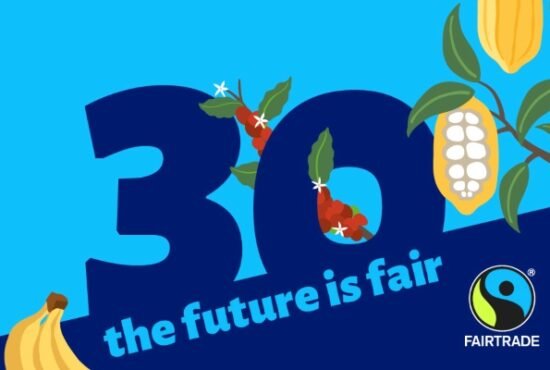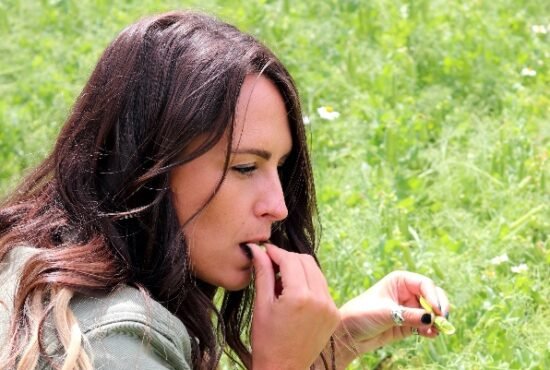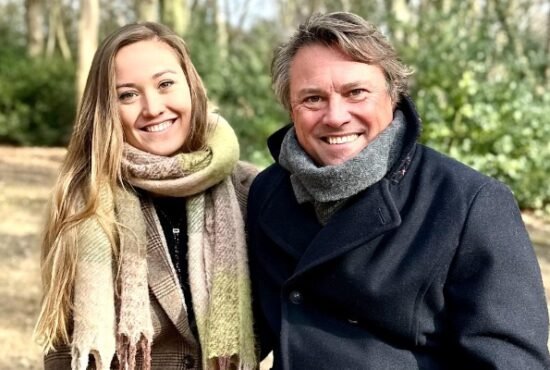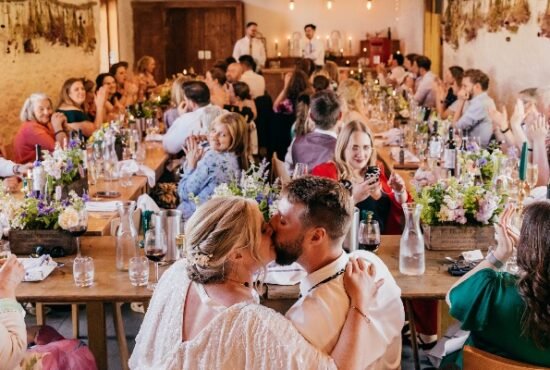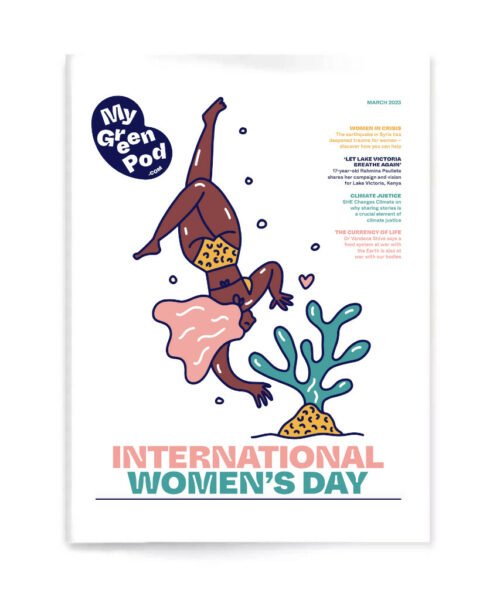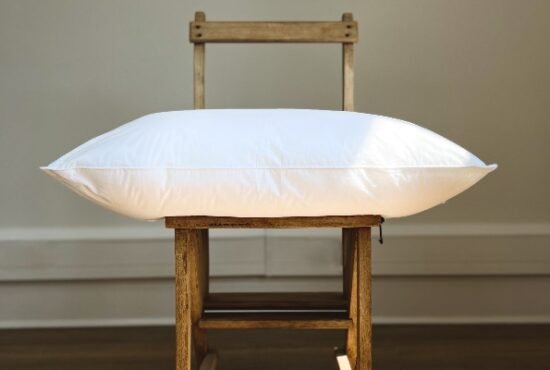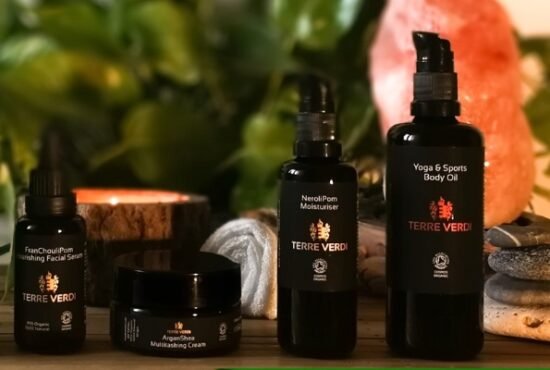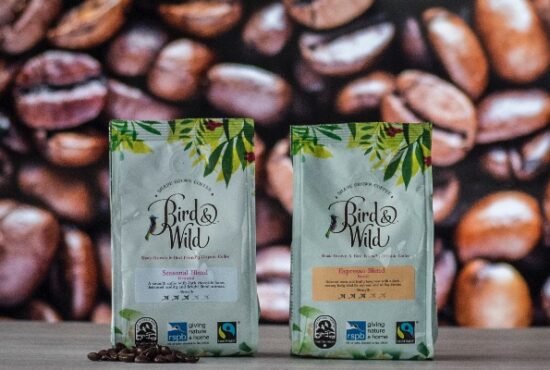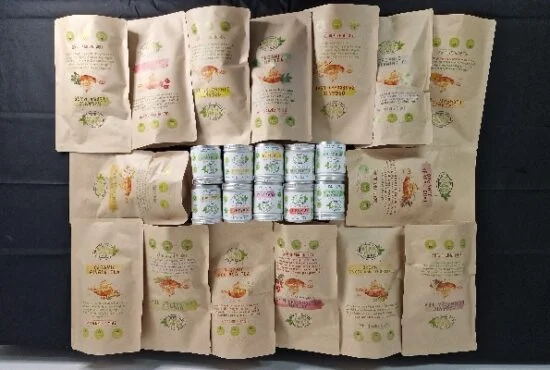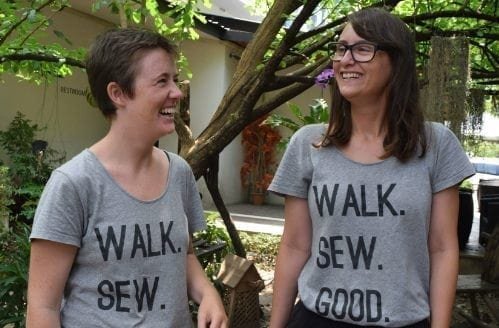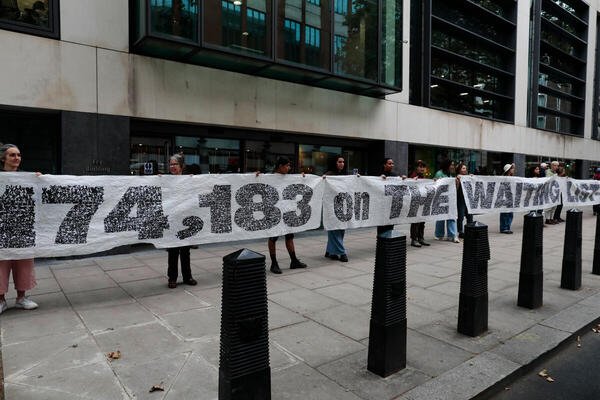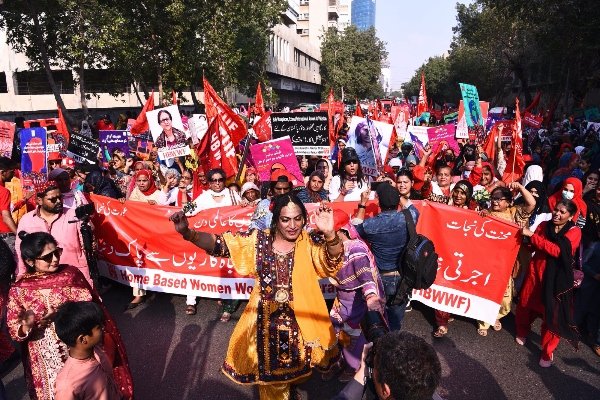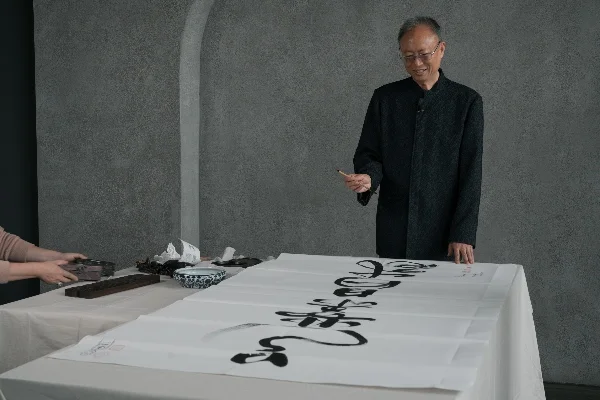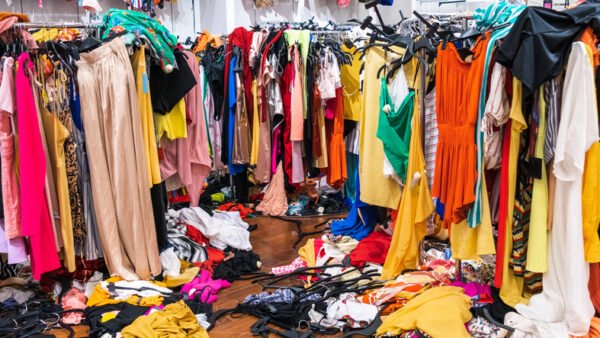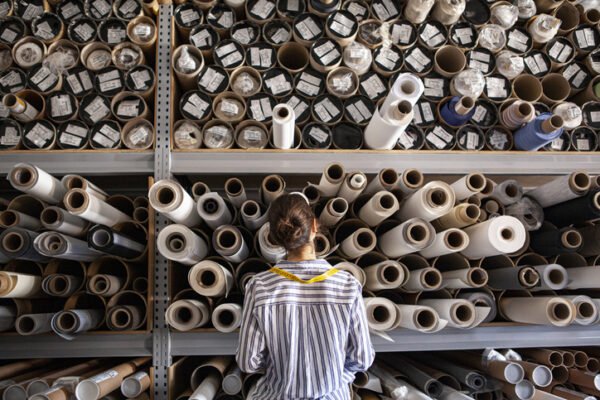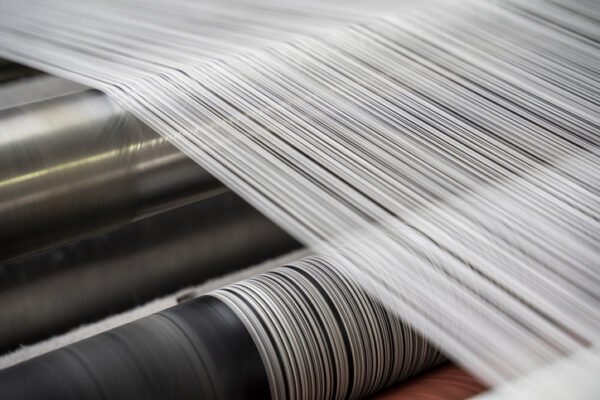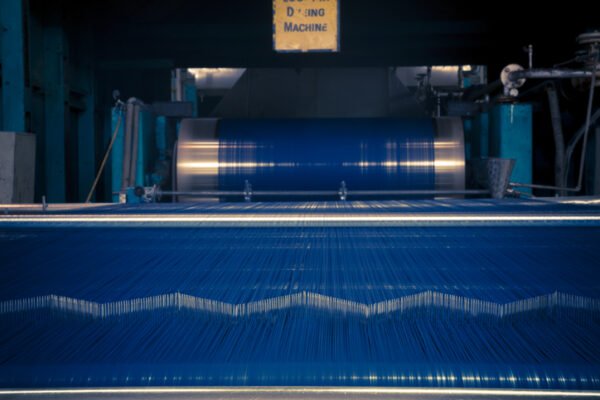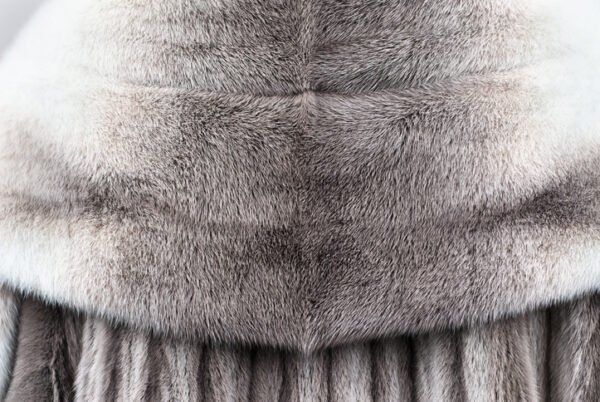‘I hate shopping. I’ve always hated shopping.’ Not the words I expected to hear from a woman walking 3,500 miles across Southeast Asia to raise awareness of ethical fashion. But within minutes of meeting Gab Murphy and her companion Megan O’Malley, it’s crystal clear that the epic journey they’re making is not about clothes. It’s about people.
It pays to be positive
Gab and Megan are the founding members of Walk Sew Good. They have taken flight from their homeland of Australia to walk across Vietnam, Cambodia, Thailand and Laos, meeting businesses along the way that take care of people and the environment.
Broadcasting their interviews across YouTube and Instagram, they hope to inspire consumers to make more socially responsible choices when shopping for fashion.
‘We did think about telling negative stories as well as positive ones’, says Megan, ‘but rather than showing people what they shouldn’t be doing and making them feel guilty, we decided to show people who they should be supporting.’
‘Negative stories don’t bridge any gaps between the consumer and the maker. You can read horrific details of abuse in the workplace and factories collapsing, people living on two dollars a day, and it’s something you cannot relate to at all in the west. Whereas if you have a story where you go into someone’s home and they’re like: my mum taught me how to sew, and my favourite movie is La La Land, you create that human aspect. It’s like, okay, I can relate to that. These are not just poor people that we need to help save. They’re intelligent, they have solutions. It’s about supporting them to make those solutions.’
GAB MURPHY
Co-founder of Walk Sew Good
Empowering workers
I joined Gab and Megan on a visit to Dignity Returns, a small garment factory on the outskirts of Bangkok which is a case in point. Co-founder Manom explained how he and his fellow workers set it up after fleeing horrendous working conditions in a factory producing clothes for some of the major global brands.
Workers were forced to take amphetamines to stay awake during gruelling three-day shifts. Pregnant women lost their babies as a result. Workers were fined for yawning.
It’s been a struggle to get to where they are now but they’re proud of what they’ve achieved – they work in good conditions and are part of a thriving community.
Hearing Manom say this, and seeing the space they’ve created, where it’s light and cool and the workers look comfortable and healthy, I think yes. Of course this is where I’d rather my money went.
‘This is exactly the kind of story that keeps us going’, says Gab. ‘Workers feeling empowered and taking their fate into their own hands.’ Megan agrees: ‘Every time we do an interview we just get so inspired. It’s amazing to see the different solutions people have to the problems.’
Shopping ethically
One issue I’ve experienced while researching this piece is the urge to buy from all the companies Megan and Gab have visited. Stunning silver jewellery made from recycled iPhone parts by local Vietnamese artisans at Wrongami. Comfy casuals tailored by Cambodian company Dorsu out of end-of-roll leftover materials. Colourful backpacks fashioned from upcycled material by Beekeeper Parade.
 Play Video about This Rock Might Just Save The World
Play Video about This Rock Might Just Save The World Play Video about Play 2 hours of rock
Play Video about Play 2 hours of rock Play Video about Play 2 hours of brook
Play Video about Play 2 hours of brook Play Video about Play 2 hours of sheep
Play Video about Play 2 hours of sheep
